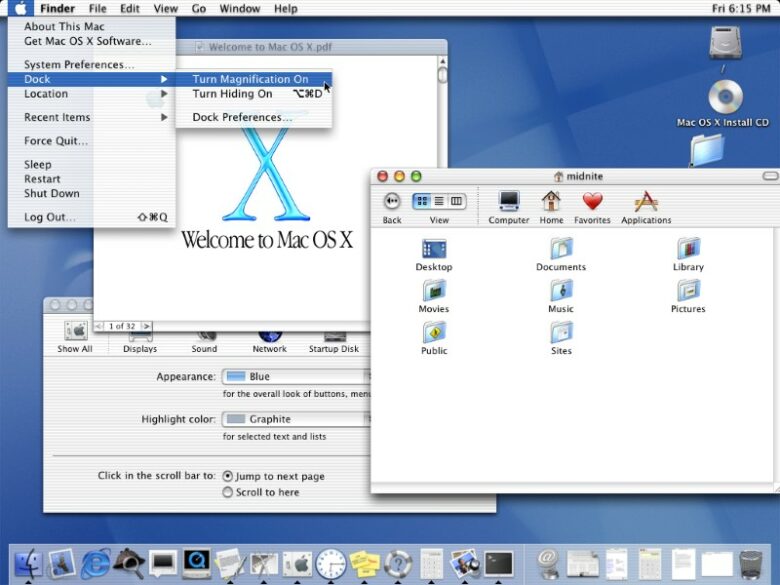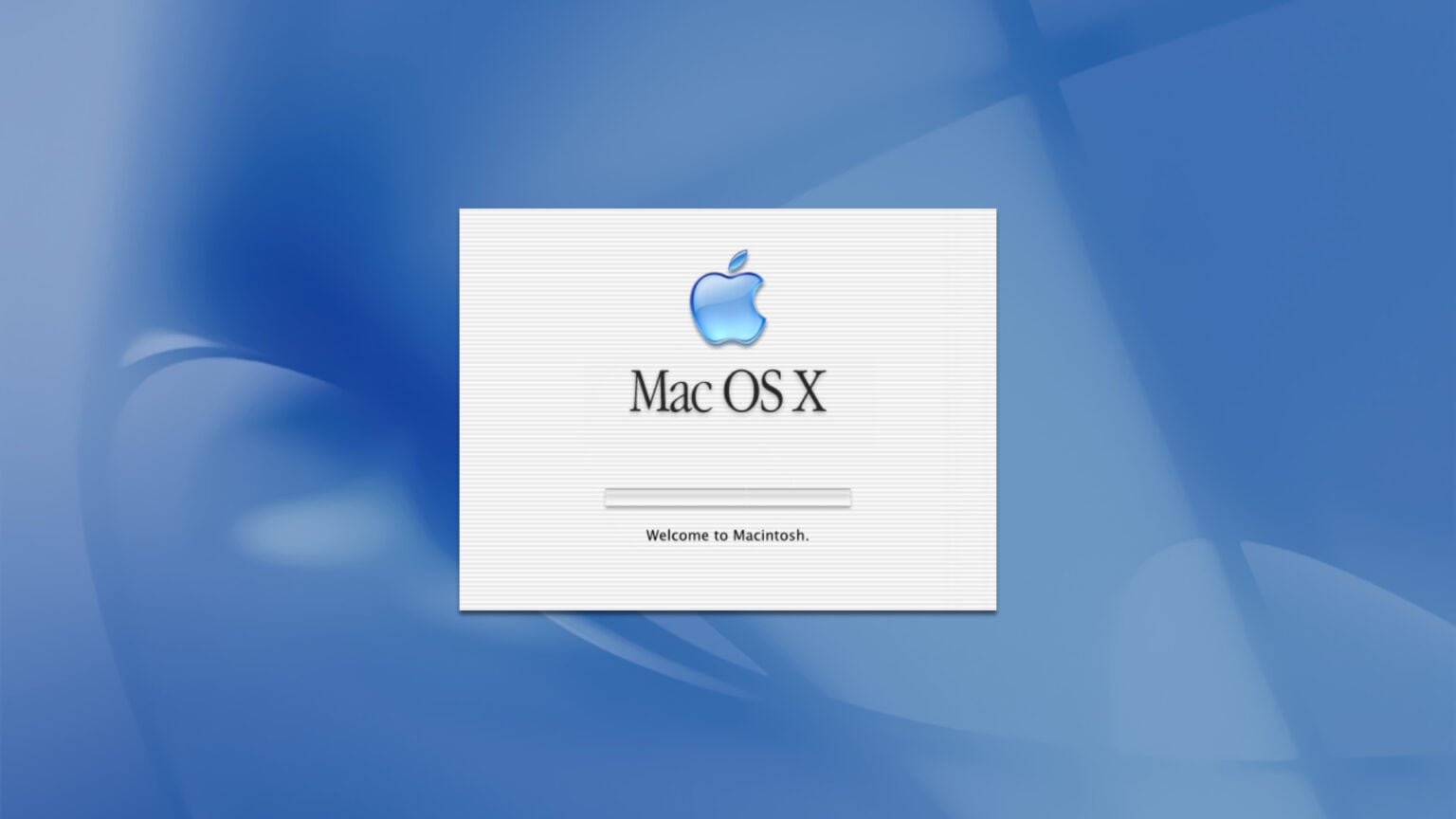OS X, the most important piece of software in Apple history, turns 20 today.
Going on sale in its full, public version on March 24, 2001, Mac OS X 10.0 — code-named Cheetah, the first of many cat-themed names — transformed Apple’s operating system forever. It brought user interface enhancements that persist to this day, as well as technological advances that form the backbone of Apple’s current operating systems. In fact, OS X paved the way for today’s post-PC devices, from the iPhone and Apple Watch to HomePod and Apple TV.
While Apple eventually ditched the “OS X” branding for “macOS,” and switched from naming Mac software after big cats to California locations in 2013, Cheetah’s impact continues to be felt two decades after its introduction.
The OS that brought Steve Jobs back to Apple
It’s hard to overstate how significant OS X was for Apple at the time — or how much it changed the company. Apple’s operating systems, while still great in the late 1990s, had been steadily losing ground next to powerhouse hits like Windows 95 and Windows 98. Microsoft had seemingly figured out the formula, and Apple was treading water. Or, perhaps, starting to sink. Promised updates like Mac OS Copland never appeared as promised.
In desperation, Apple decided to buy NeXT, the failing computer company started by Steve Jobs after his unceremonious ouster from Cupertino more than a decade earlier. NeXT made beautiful computers that didn’t sell. Quickly, it ditched the hardware and pivoted to software by focusing on its NeXTSTEP operating system.
Apple bought NeXT in late 1996, bringing Jobs back into the fold. Without Steve at the helm, Apple today would be a very, very different company from the one it became.
Mac OS X introduces Unix to the Macintosh

Photo: Apple/Wikipedia CC
Jobs set about incorporating NeXT’s technology into the Mac operating system. It’s not accurate to say that OS X was a reskin of NeXTSTEP, but it borrowed a lot — most notably its Unix base. It was as big a shakeup of Apple’s operating system as has ever happened.
Looking back at the launch of OS X 10.0 really highlights both how modern it was and how much has changed in the two decades since. Some superficial details seemed amazing at the time: a 3D-looking interface with shadows, the ability to move a video window with the video continuing to play. It also introduced the Dock, Terminal and far more that is now taken for granted as a part of today’s macOS.
Cheetah was, like the original 1984 Macintosh 128K, limited. But all the pieces were there. Even 20 years on, it remains a beautiful operating system.
In some ways, the debut of OS X marked the beginning of the end for Apple as a company focused predominantly on the Mac. While the 1990s saw other areas of interest (the Newton MessagePad stands out), Apple was still, well, Apple Computer. OS X ushered in a new era in which the computer became the centerpiece of what Steve Jobs called the digital hub.
Times are a-changin’
In retrospect, the debut of OS X was the last hurrah for the era of the personal computer. Apple continued to make stunning Macs, but the importance of the computer receded for the company. In the early 2000s, the Mac was superseded by the iPod and iTunes. An even bigger shift came in 2007 when Apple unveiled the first iPhone, and the world went mobile-first.
But OS X played a crucial role there, too. Apple employed the Unix-based Darwin kernel behind OS X in iOS, too. At the iPhone’s debut, Jobs even described it as running OS X. Even today, the kernel and many core libraries remain shared between the two operating systems. And iOS, in turn, forms the basis of iPadOS, watchOS and tvOS.
It’s impossible to overstate the importance of OS X to Apple. It changed the company beyond recognition. While Apple’s hardware gets the most attention, those shiny devices would be nothing without great software to run on them.
Twenty years ago today, Mac OS X laid the foundation for the Apple ecosystem we know and love in 2021.
Your Mac OS X memories
One thing I’d forgotten about was the fact that OS X arrived at a time when Apple still charged for its operating systems. There were no over-the-air updates or free upgrades. If you bought OS X in September 2000, when it was first made available as a public beta, it cost $29.95. If you waited until the proper launch version in March, it cost $129. And Apple replaced it with OS X 10.1 Puma just six months later!
What are your memories of OS X? Tell us about the first Mac operating system you remember using in the comments below.


